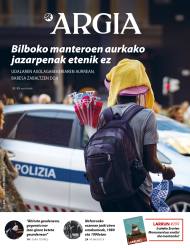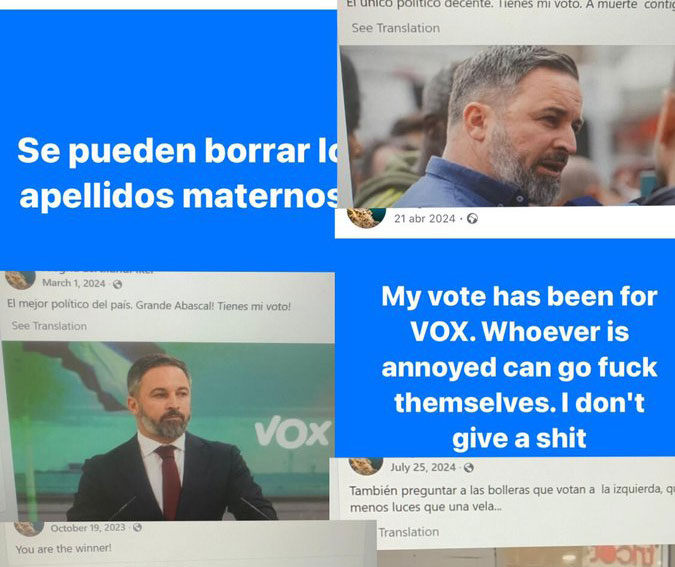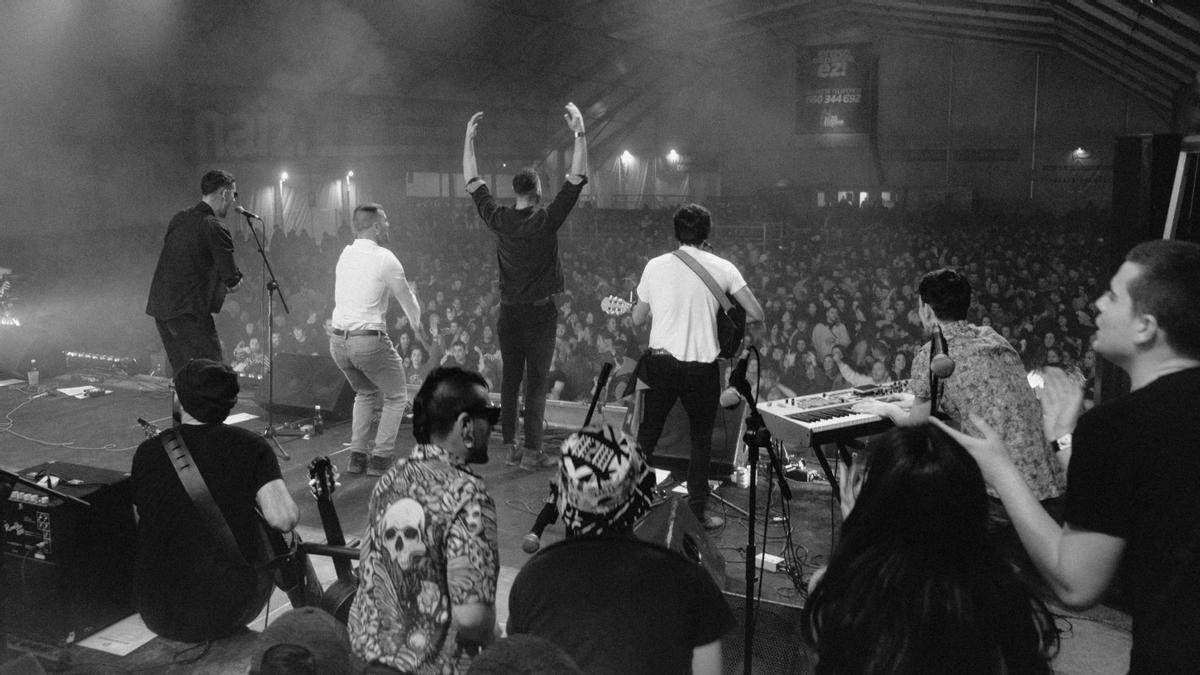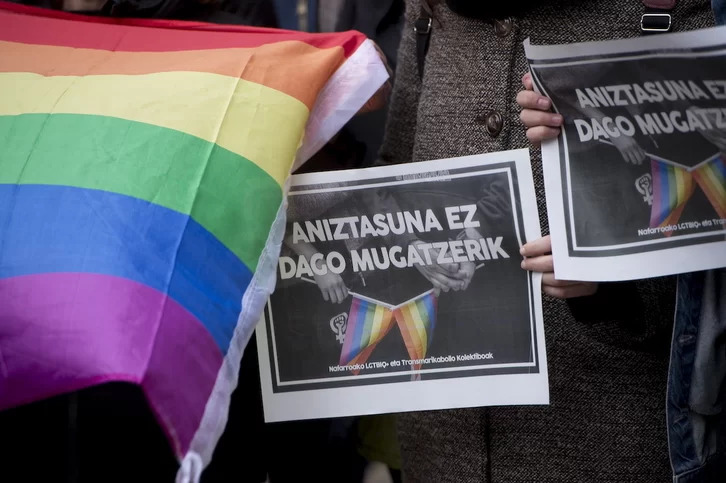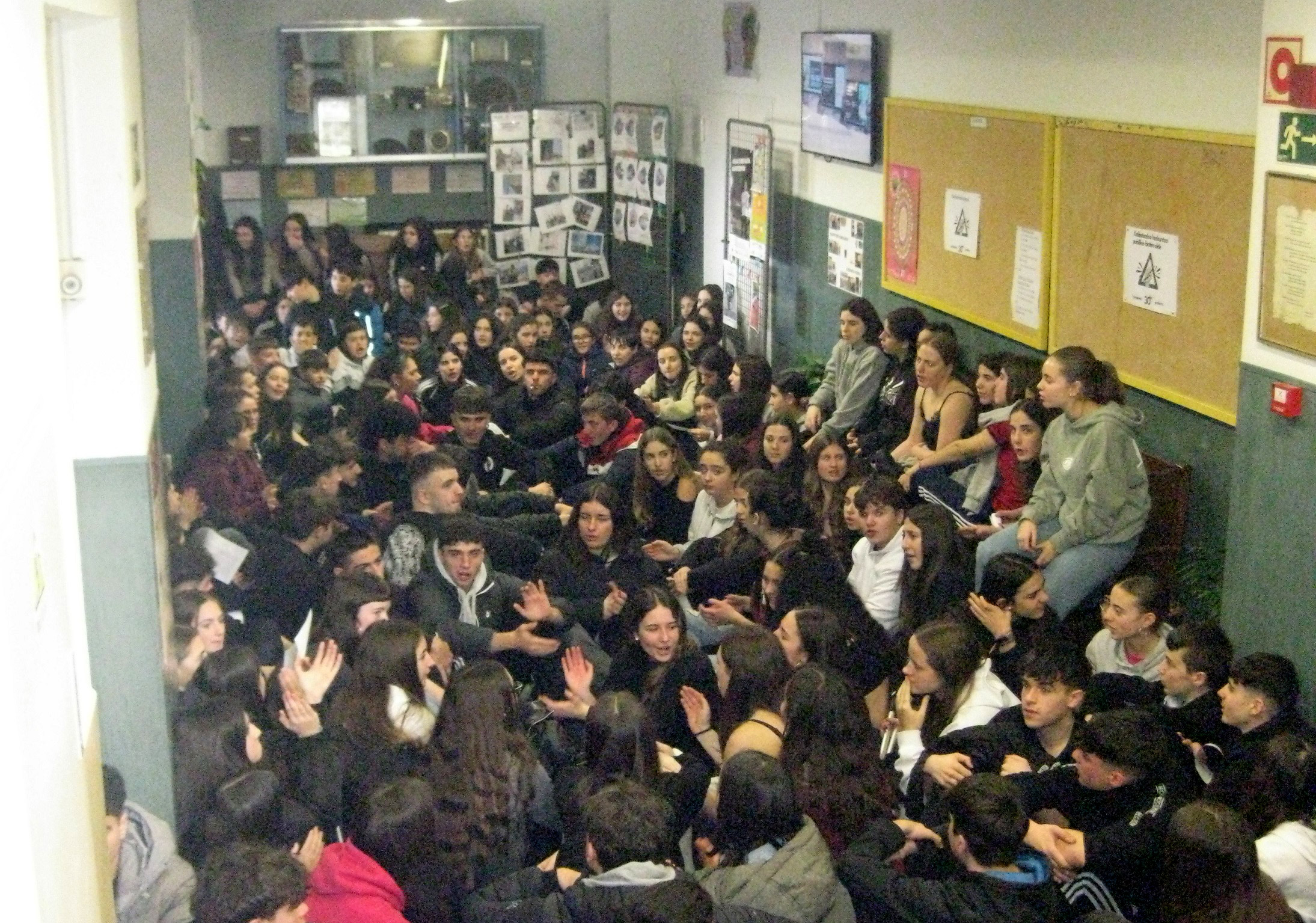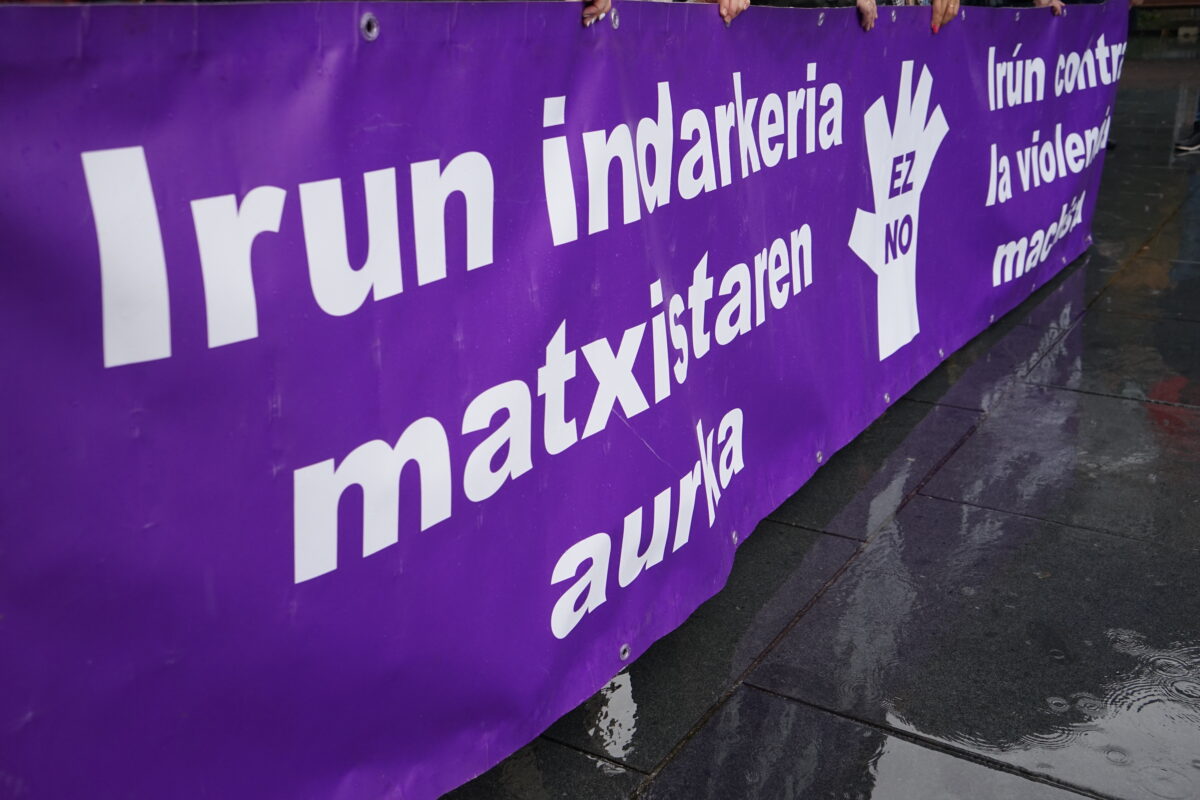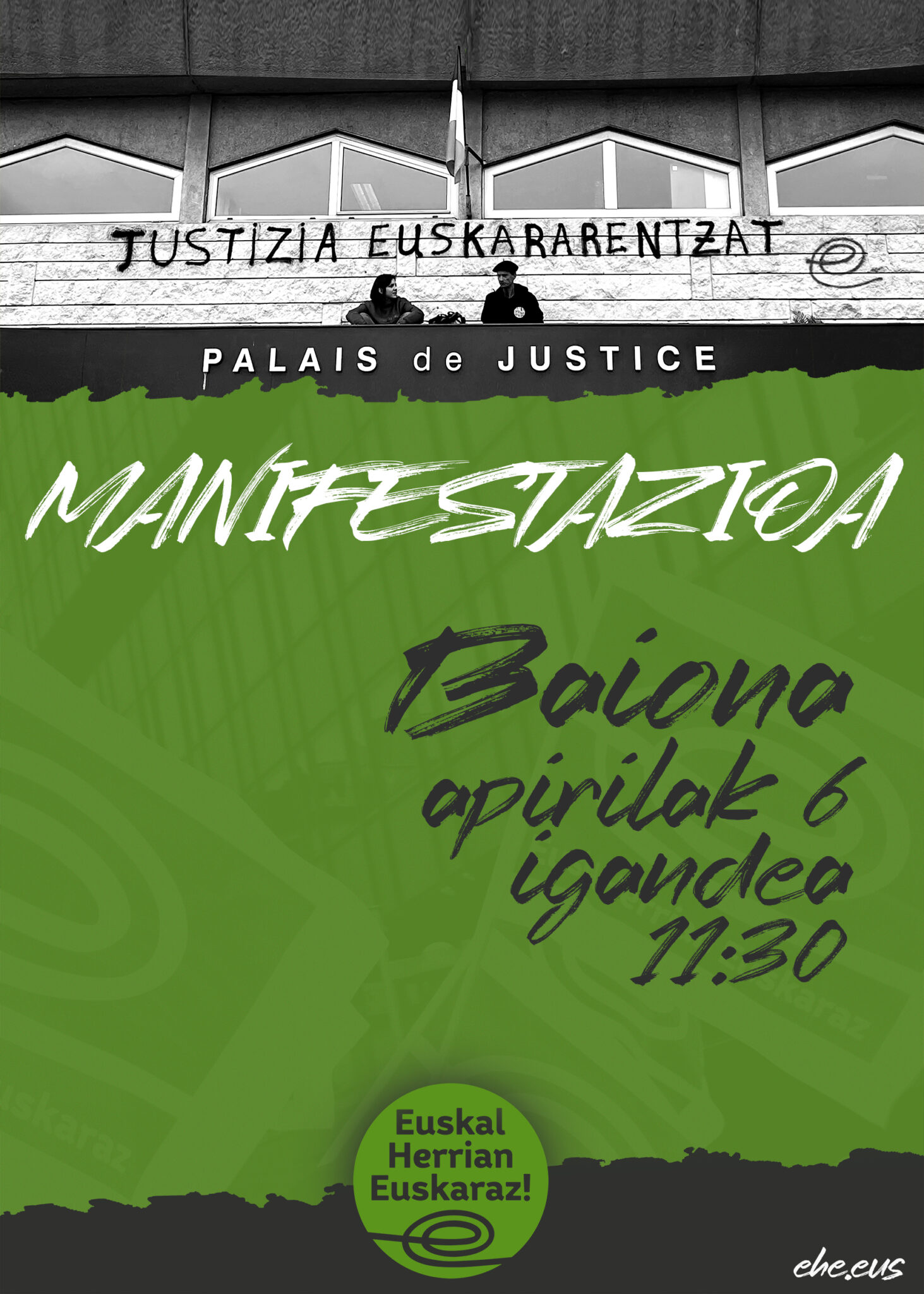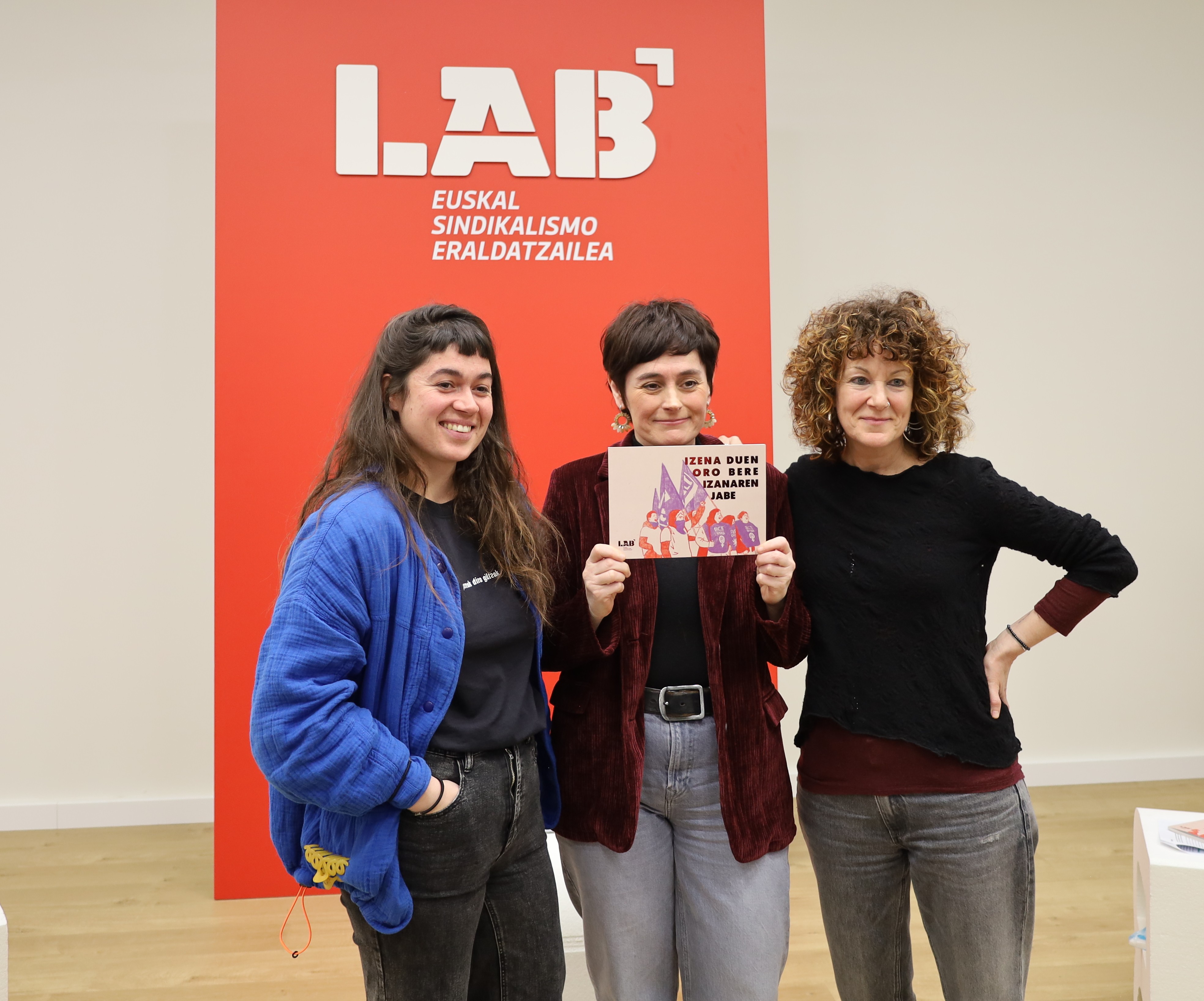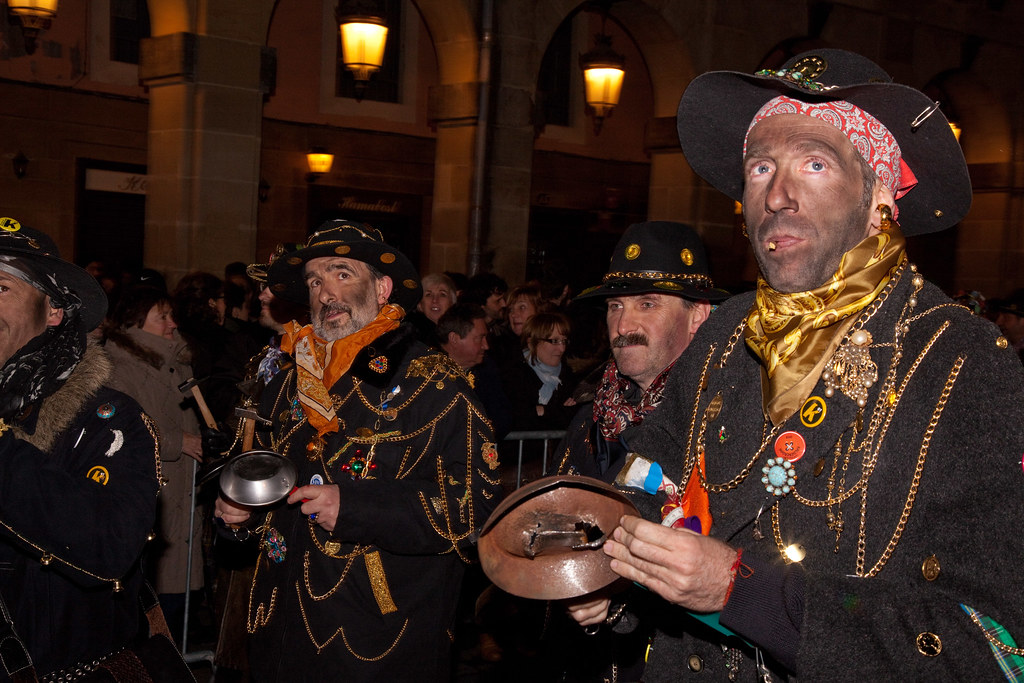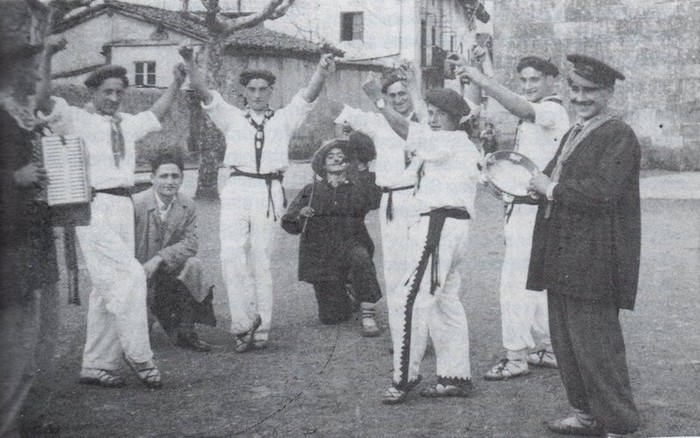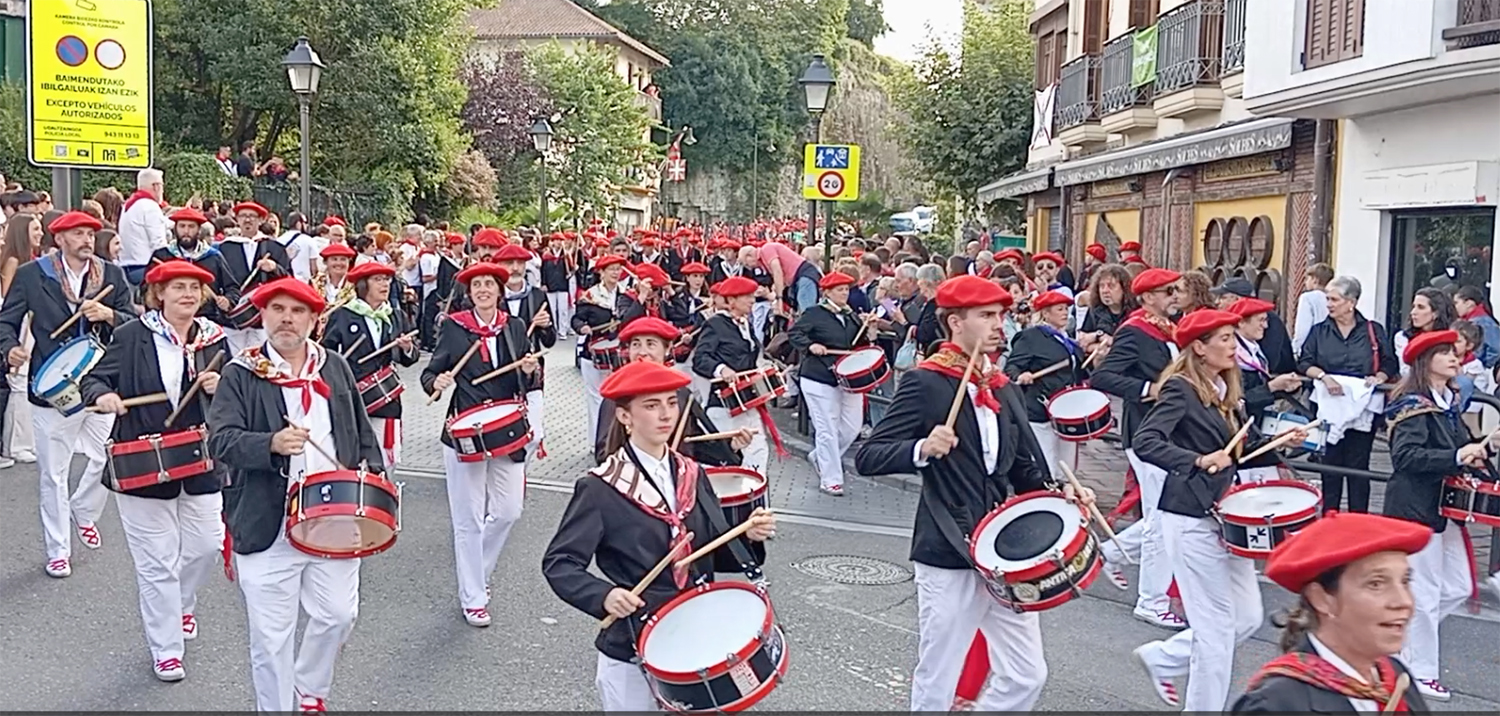"It doesn't seem that the authorities are really interested in solving the state of the manteres."
- We have talked to the members of the three associations that are part of the Manteroekin Bat platform about the situation experienced by the manterans in Bilbao in recent months: Boubacar Diouf (Mbolo Moye Doole), Luisa Menéndez (ongi Etorri Errefuxiatuak) and Elena Bezanilla (SOS Racism Bizkaia). Police interventions in the area have reportedly seen a "significant increase".

In April, dozens of collectives and socio-union organizations in Bilbao created the Manteroekin Bat platform, on the occasion of the “police aggression” of April 4 in the district of Abando de Bilbao. Boubacar Diouf, a member of the Mbolo Moye Doole Platform, tells us that about 80 policemen of the Municipal Police and the Ertzaintza of Bilbao went to "take things from people who try to make a living". He has denounced the use of dogs and porras that had no muzzle and added that, although to a greater or lesser extent police attacks "always" have noticed that they have intensified since the events of 4 April last.
The Manteroekin Bat platform denounced that the Municipal Police and the Ertzaintza acted “violently and racially” during the festivities of Aste Nagusia in Bilbao. During the festivities, the police have intervened several times, and on the last day, the congregations on the esplanade of the Arriaga Theater proved that the police continued to harass the manterers, defended the manterers along with members of Bilboko Konpartsak, shouting "Bilboko Konpartsak with manteroak bat". Diouf has pointed out that the events of the last day could "have been avoided".
“The City Hall speaks a lot of security. They're creating an enemy and it's terrible. From my point of view, he approaches Nazism.” Elena Bezanilla SOS
After the festivities of Aste Nagusia, the Baterekin Bat was concentrated on August 27 in front of the Arriaga Theatre, under the slogan “No more persecutions against the mantars”. The platform denounced that during the festivities the police acted with "a stigmatizing and violently racist attitude" and "retained the goods, money and personal goods" of the officers. Diouf says they took away the personal goods from a mantere: “We try to talk to them, but they are afraid. A guy has told me he's not going to report because he doesn't want any problems, but I've told him he already has the problem, he's going to have a judgment. In the event of the removal of personal goods, they must return them.”
Without “real interests” to resolve the situation
From the platform, they state that the increase in police operations is a "political decision" driven by the City Council of Bilbao. Member of SOS Racism Bizkaia, Elena Bezanilla, criticized the words of the City Council of Bilbao in relation to security: “The City Hall talks a lot about security and I worry. There has been no talk of security for many years, and I do not think it is a problem. They produce psychosis and fear. What benefits do you get from fear and insecurity? I believe that this policy of securitisation will primarily harm the excluded.”
Luisa Menéndez, member of Ongi Etorri Errefuxiatuak (OEE), for his part, said that "beyond a few words without compromise, there does not seem to be any real interest on the part of the authorities in arranging the mantere situation. They say they're going to hear the manteres, but what for? "To tell them you had a meeting with them?" They know the situation and the manteres are sick. Who would you like to go out into the street with a piece of fabric and some products? We all want working conditions, rights and obligations.” Diouf has pointed out that street sales are successful at certain times – especially in summer at parties – but that on other occasions manteros do not sell anything. Menéndez calls for greater cooperation on the part of administrations: "I'm not saying you don't do anything, but you can do a lot more. It is not normal for more than 500 people to sleep on the street and there are no hostels."

Mbolo Moye, a member of the Doole Platform, has referred to the difficulties faced by migrants under the existing Aliens Act: “The law prevents undocumented people from entering the labor market in a couple of years and selling it on the street to make a living. It's a pretty dark future, because it's not guaranteed that if you spend three years in the Spanish state you're going to have papers. Many people have been claiming their roles for five, six, seven or ten years." Bezanilla says that a friend of his has been unable to get the papers for eighteen years.
The member of SOS Racism stressed that "political responsibility" must be demanded because "if there is political will, there are solutions": "They can be comprehensive solutions that are not repression or punishment, but have a place other administrations besides the city council. Solutions can be found to address the situation experienced by our neighbours and neighbours, who are undermined by an unjust and racist law.” In a note published in the call of 27 August, Manteroekin Bat stated that "there is an urgent need to propose collective mechanisms to prevent the violation of the fundamental rights of manters".
The platform has held three meetings with officials in the area of Equality, Coexistence, Cooperation and Migration of the City of Bilbao, in which five lawsuits are based. On the one hand, political responsibility and control of abuses: “We demand the immediate cessation of physical and verbal violence in police action and the implementation of the monitoring, control and punishment of police officers who abuse power.” Secondly, they have pointed out that the police practice of withdrawing documentation or other personal objects from street vendors is contrary to fundamental rights and this practice must be abolished. The same applies to the practice of confiscation of street vendor products, which say that it is a controversial and untransparent practice and that it needs to be revised. The fourth point is to agree, as has already been done in other territories, safe spaces for sale, both in the Aste Nagusia and in the festivities of the neighborhoods. Finally, they have called for the access of manquins to municipal sports clubs, so that they can be cleaned and rested in decent conditions. The aim of these measures is “not to repeat such actions” and “to establish minimum common sense criteria to deal with situations of racist police abuse that violate the fundamental rights of the manteres”. The platform explained that the Bilbao City Council rejected the five petitions made and that they did not meet again after the 27 August concentration in Bilbao.
Repair and recognition of damage caused
Menéndez says that "cases of abuse of power" committed by the police against migrants are being normalized: “Many people living near Ongi Etorri Errefuxiatuak headquarters tell us that every two or three days they ask for documentation. Two or three months ago, a dozen young people were waiting at the headquarters of the association for treatment, and three or four police cars appeared. All three were fitted against the wall and required documentation, as they received a warning that they had stolen a cell phone in the area. Why were they suspicious? As migrants? That’s normalizing abuses.”
“The City Council of Bilbao is based on legality, but it can be changed with citizen or municipal rules. In Barcelona they have reached an agreement with the manteres”. Luisa Menéndez (Welcome to Refugees)
“One day, as I was running towards the metro, two policemen asked me where I was going and what I had in my pocket. When they took my phone out, I was told to put a password on it,” Diouf says about a situation he had experienced. Bezanilla has shown concern that racialized people circulate in the street without security can have psychological effects on migrants, as well as risks of aggression, insults or theft.” The member of SOS Racism has stated that, in addition to the complaints, the damage caused and the damage caused must be repaired and acknowledged.
Bezanilla explained that no identifying data are collected by ethnic profile and that the latest data relate to 2013. He added: "Europe has alerted the Spanish state to all the identifications made on the basis of its ethnic profile," he said.
With messages broadcast by some critical media
“Fear is what most influences society. People are frightened by sending messages of invasion and crime,” said Menéndez, referring to messages broadcast by some media. He stressed that the media, associations, society and institutions "have to deal with fear", setting as an example the messages of some media: “The Correo always has a message to criminalize migrants, they always talk about crime and invasion. They collect the most racist and xenophobic messages from the far right of the Spanish State and reflect them in a smooth way. Why do they not report on the Aliens Act in force, the repression of migrants and the millions of euros spent by governments to strengthen borders?” Menéndez says that the human being has migrated "always", "before there are states or borders", and that migration is a right: “People have the right to migrate and to do so they have to open safe roads.” He believes that the extreme right is interested in being a migrant, "but working in poor conditions, without rights and in an unfavorable way," the spokesman said.

The authorities "are interested in creating an enemy," says Bezanilla, to continue to maintain "uncontrolled privileges and benefits": “They’re creating an enemy and it’s terrible. From my point of view, he approaches Nazism.” Diouf, for its part, has stated that the media do not capture what European fishing boats do in some African states, and has denounced that this practice is precisely the “origin of migration” of Senegal: “I have spent many years at sea, and fishing areas are not respected, licences are not respected... Basque tuna vessels fish everything they want and the media do not denounce it.” Bezanilla also stressed that “fishing families are forced to emigrate”: “There is no talk of extractivism, nor of Europe getting rid of all riches on demand, and then doing business with borders.”
Legality to face and morality
The City Council of Bilbao says that the sale made by the manteros is “illegal”, but Menéndez says that “we have to distinguish between the illegal and the moral and the ethical”: “They are based on the legality, but the legality can be changed by citizen or municipal rules. In Barcelona they reached an agreement with the manteres.”
Bezanilla points out that he does not agree with some of the messages sent by the City Council of Bilbao and that they say some things, but they do others: “They talk about the nearby police, but they go with the dogs to repress the people who bring out their lives in a peaceful and dignified manner. They say that Bilbao is the city of interculturality and reception, but we see that there are first and second citizens. They say the parties have been very peaceful, but with some it has not been so noticeable.”
However, the three members of the Manteroekin Bat platform have assured that the majority of the population does not see the manteroekin's job poorly: “There’s everything, but I think subjectively that people are not against manteres. The message has spread that they are winning life without harming anyone.” In the last statement made by Manteroekin Bat, Bezanilla noted the signing of 66 associations and highlighted the collaboration of Bilboko Konpartsak at the parties of Aste Nagusia. "Sometimes people say it's just a signature, but when you see it's signed by the association you belong to, you somehow feel connected to that solidarity," Menéndez said.
In addition, he recalled that in Euskal Herria there are many associations and groups that work in the care of migrants. Diouf explains to us, for example, that Manteroekin Bat organized a workshop on 12 September last, so that the officers know the tools and other legal aspects to defend their rights, and that they will continue on the path of organizing activities and activities.
I don't want my daughter disguising herself as a Gypsy in the caldereros. I don’t want Gypsy children at my daughter’s school to dress up as Gypsies in caldereros. Because being a gypsy is not a disguise. Because being a gypsy is not a party that takes place once a year, with... [+]
The Department of Education doesn't understand why public employees have gone on strike. He's got to ask the LAB Syndicate. This union signed an agreement with the department in April 2023. Two years later they have also called for a strike because, unlike the previous ones, the... [+]
Erretiratu berri den lankide-ohi baten omenez, Historiako irakaslea. Bejondeizula!
Hezkuntza-legeek azpimarratzen dute zein garrantzitsua den ikasleengan pentsamendu kritikoa sustatzea. Baina irakasle-klaustroak, garai batean ideien eztabaidarako eta proposamenak... [+]









